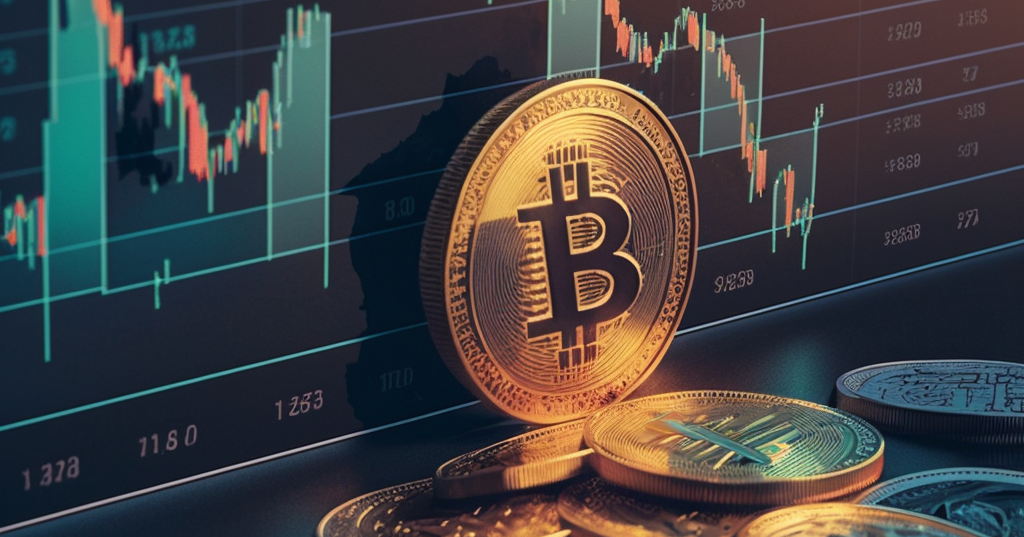The demand for cryptocurrencies may skyrocket! What else does Deutsche Bank report "Imagine 2030" imply?
Source: Shallot Blockchain
Deutsche Bank report "Imagine 2030" states that as inflation rises, people are increasingly skeptical about the sustainability of government-backed currencies, which may prompt more people to buy digital assets. The report analyzes 24 alternatives over the next 10 years. Shallot will translate and organize only two of these topics.
Strategist Jim Reid pointed out that the power to maintain the current fiat currency system now seems fragile and may collapse in the 1920s. If so, it will start to create resistance to fiat currencies, while demand for alternative currencies such as gold or cryptocurrencies may skyrocket.
- The "Bitcoin Giant Whale" gray company continues to move in 2019, indicating that there may be great changes in 2020?
- Perspectives | Stateless Clients: New Trends in Ethereum 1.x
- One article to understand why 2019 is the year of DeFi and 2020 is the year of DeFi
Marion Laboure, a strategist, said that in the long run, with the popularity and attractiveness of cryptocurrencies , they will eventually have the potential to replace cash (bank cards).
First, the end of fiat money?
1. The fiat currency system is unstable and prone to high inflation
Since 1970, we have been living in an era dominated by fiat money. Almost all existing money or money has only value based on trust, especially the trust of the government in its ability to maintain value.
Prior to that, most currencies that existed in history were supported by commodities, usually precious metals such as gold or silver. When the currency breaks out of such a system, it often leads to inflation (usually a sharp increase), and if the currency returns to the system, the inflation situation will slow down.
We believe that under all other conditions, the fiat currency system is inherently unstable and prone to high inflation.
2. Demand for alternative currencies such as gold or cryptocurrencies may surge
From a political perspective, creating money without any commodity support is very tempting. The current fiat currency system has been around for decades.

However, the power to maintain the current fiat currency system now seems fragile and may disintegrate by the 1920s.
If so, it will start to create resistance to fiat currencies, and demand for alternative currencies such as gold or cryptocurrencies may skyrocket.
Reid pointed out that after the end of the monetary system supported by gold, the 1970s began to face inflation out of control and a surge in demand for gold.
It is worth noting that Reid did not praise the central bank for curbing inflation. Instead, it pointed out that China's rise has been the biggest factor in curbing global inflation in the past four decades due to the rapid increase in labor supply.
However, the working population has peaked in the past decade, and governments may slowly shift their policies toward workers left over from globalization, increasing fiscal spending, rather than adopting aggressive monetary policies.
If labor costs rise to marginal benefits rather than decline, policy makers will face even more difficult situations. 
(Labor demographics of developed regions and China)
In the end, it is likely that inflation will become more and more deeply embedded in the system, and suspicion of fiat currencies will become more serious, which will greatly increase the demand for alternative currencies.
And can the fiat currency survive the policy dilemma between authorities trying to balance higher yields and record levels of debt? This is a question related to tens of trillions of dollars (or Bitcoin) over the next decade.
Cryptocurrency-21st Century Cash?
It wasn't until 2017 that Bitcoin soared to nearly $ 20,000 that cryptocurrencies gained widespread worldwide attention. The cryptocurrency Libra, announced by social giant Facebook earlier this year, has sparked multifaceted discussions at the social and political levels.
However, Marion Laboure pointed out that as of now, cryptocurrencies are only a supplement to global currency types, not a substitute currency. Despite their well-known advantages such as security, fast speed, low transaction costs, easy storage, and ease of use, they have not yet become a payment method.
But in the next decade, this situation may be different. In the long run, as cryptocurrencies become more popular and attractive, they will eventually have the potential to replace cash (bank cards).
1. On the supply side, governments, banks and credit card companies are moving towards a cashless society
Currently, the two most populous countries in the world (China and India) ban cryptocurrency transactions. However, much progress has been made in central bank digital currencies. In late October, President Xi Jinping stated that he should regard blockchain as an important breakthrough in independent innovation of core technologies, clarify the main attack direction, increase investment, focus on overcoming a number of key core technologies and accelerate the development of blockchain technology and industrial innovation. China's central bank digital currency is also continuing to advance. Scallion mentioned earlier that a person close to the central bank's digital currency pilot project team said that the Shenzhen digital currency pilot program is divided into two phases. At the end of this year, it is a phase. The pilot will be closed in a small-scale scenario. Large-scale promotion. If the pilot work progresses smoothly, the central bank's legal digital currency will make substantial progress, which can be said to be a real "coming soon."
In addition, India announced in 2016 the abolition of two old high-value currencies worth 500 rupees and 1,000 rupees in circulation. The Onion Express mentioned earlier that the governor of the Bank of India stated on December 4 that it is too early to talk about the central bank's digital currency, but the Bank of India is studying this and has also held discussions with other governments and central banks. .
2. Retailer and consumer acceptance of digital currencies
As for the receptivity of retailers and consumers, according to dbDig's preliminary research, nearly two-thirds of consumers prefer dematerialized payment methods over cash payments, while one-third of consumers worry about anonymity. These two factors are exactly the advantages of cryptocurrencies.
3. The adoption of payment methods will be further improved
Assuming the government supports cryptocurrencies and consumers want to get cryptocurrencies, the adoption rate is further increased.
The chart below compares the adoption rates of the Internet and blockchain wallets. Although the number of people who are currently using blockchain wallets is relatively small, the adjusted curves are very similar. 
It can be seen that if the current trend is maintained, there may be 200 million blockchain wallet users by 2030.
4.Cryptocurrencies need to overcome 3 main challenges to be widely adopted
a. Comply with the legitimacy determined by government regulators. This means they need to ensure price stability and convenience for merchants and consumers.
b. Need to cover the global payment market. To do this, they need to align with stakeholders, such as Apple Pay, Google Pay, Visa, Mastercard and other payment agencies and retail giants such as Amazon and Wal-Mart.
c. The use of cryptocurrencies will also bring new challenges, such as threats to power, network security, and even digital wars. When this happens, the boundaries between cryptocurrencies, financial institutions, the public sector, and the private sector may blur.
This article is exclusively compiled and translated by the Scallion APP from the German report " Imagine 2030 ". Please indicate the source when reprinting it.
We will continue to update Blocking; if you have any questions or suggestions, please contact us!
Was this article helpful?
93 out of 132 found this helpful
Related articles
- China Europe Business School Gong Yue: DAO and Alliance Chain, a dispute that began with Hayek and Keynes
- Vitalik's latest thinking: what kind of subversive effect the second party payment will bring
- Nobel laureate Tirole: Humanity is facing a new round of currency war, this round of war is likely to include cryptocurrencies
- Weekly Bitcoin Positions Report | Many types of accounts show a bearish attitude and further callback danger signals appear?
- Featured | Five-Minute Quick Tour of the 10-year History of the Blockchain; Ethereum 2.0 Information Collection
- Trojan attacks, 5,000 computers reduced to mining "black labor"
- Big Brothers Call | Chain Node's 2nd Anniversary Special Show Talks Tonight






